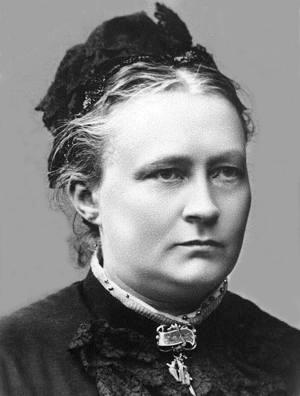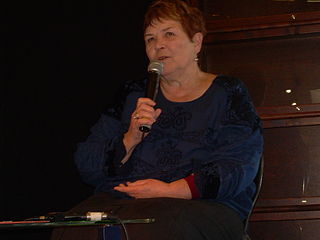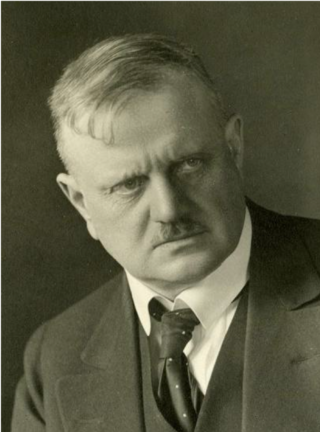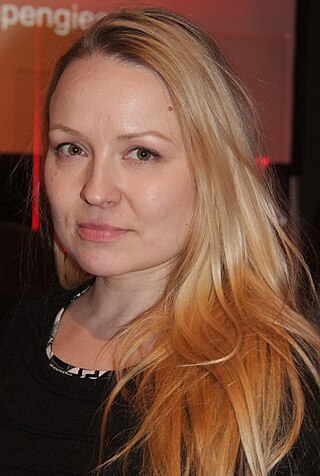Related Research Articles

Aki Olavi Kaurismäki is a Finnish film director and screenwriter. He is best known for the award-winning Drifting Clouds (1996), The Man Without a Past (2002), Le Havre (2011), The Other Side of Hope (2017) and Fallen Leaves (2023), as well as Leningrad Cowboys Go America (1989). He has been described as Finland's best-known film director.

Touko Valio Laaksonen, known by the pseudonym Tom of Finland, was a Finnish artist who made stylized highly masculinized homoerotic art, and influenced late 20th-century gay culture. He has been called the "most influential creator of gay pornographic images" by cultural historian Joseph W. Slade. Over the course of four decades, he produced some 3,500 illustrations, mostly featuring men with exaggerated primary and secondary sex traits, wearing tight or partially removed clothing.
Eija-Liisa Ahtila is a contemporary visual artist and filmmaker who lives and works in Helsinki.
Jussi Pekka Pohjola was a Finnish multi-instrumentalist, composer and producer. Best known as a bass player, Pohjola was also a classically trained pianist and violinist.

Minna Canth was a Finnish writer and social activist. Canth began to write while managing her family draper's shop and living as a widow raising seven children. Her work addresses issues of women's rights, particularly in the context of a prevailing culture she considered antithetical to permitting expression and realization of women's aspirations. The Worker's Wife and The Pastor's Family are her best known plays, but the play Anna Liisa is the most adapted to the films and operas. In her time, she became a controversial figure, due to the asynchrony between her ideas and those of her time, and in part due to her strong advocacy for her point of view.

Daddy and the Muscle Academy is a 1991 Finnish documentary film directed and written by Ilppo Pohjola. The documentary is focused on the life and works of Tom of Finland, the pseudonym of Finnish gay erotic artist Touko Laaksonen.

Emil Wikström was a Finnish sculptor. Among his best known works are the Lyhdynkantajat sculptures on the front of the Helsinki Central railway station and the monuments to Elias Lönnrot and Johan Vilhelm Snellman.

Tapani Rinne is a Finnish musician, composer, record producer and sound designer, who is known for his experimental and innovative style with the clarinet and saxophone. It has earned him a reputation as one of the most respected and unique Nordic instrumentalists.
Roger Connah is a writer, and independent scholar based in Ruthin, North Wales, and has taught for over three decades in Finland, India, Pakistan, Sweden, Canada, and the United States. He is currently professor of architecture at the Azrieli School of Architecture and Urbanism at Carleton University in Ottawa, Canada.

Mika Taanila is a Finnish film director and visual artist.

Pirjo Irene Honkasalo is a Finnish film director who has also worked as a cinematographer, film editor, producer, screenwriter and actress. In 1980 she co-directed Flame Top with Pekka Lehto, with whom she worked earlier and later as well. The film was chosen for the 1981 Cannes Film Festival. In the 1990s she focused on feature documentaries such as "The Trilogy of the Sacred and the Satanic". Honkasalo returned to fiction with Fire-Eater (1998) and Concrete Night (2013), both of which were written by Pirkko Saisio. Concrete Night won six Jussi Awards in 2014, among them the Jussi for the Best Direction and the Jussi for the Best Film. Its world premiere was at the Toronto International Film Festival in Masters series.

Kaisa Korhonen was a Finnish theatre director, actor, singer and dramaturge. She was a central figure in the Finnish leftist music scene of the 1960s and 1970s, appearing both as a solo artist, and with KOM-teatteri. After her singing career, Korhonen became an accomplished director and teacher of theatre directing.

Red Line is a 1959 Finnish drama film directed by Matti Kassila. It is based on the 1909 novel of the same name by Ilmari Kianto. The film was entered into the 1st Moscow International Film Festival; however, the reception at the film festival was poor due to the exaggerated character of a social democratic agitator and weak quality of the film's subtitles.

Maria Gertrudis "Mieke" Bal is a Dutch cultural theorist, video artist, and Professor Emerita in Literary Theory at the University of Amsterdam. Previously, she was also Academy Professor of the Royal Netherlands Academy of Arts and Sciences and co-founder of the Amsterdam School for Cultural Analysis at the University of Amsterdam.

Everyman, Op. 83, is a theatre score—comprising 16 numbers—for soloists, mixed choir, orchestra, piano, and organ by the Finnish composer Jean Sibelius; he wrote the music in 1916 to accompany a Finnish-language production of the Austrian author Hugo von Hofmannsthal's 1911 play of the same name.
Lotta Annukka Wennäkoski is a Finnish composer.

Katja Gauriloff is a Finnish-Skolt filmmaker, director, and one of the owners of the Finnish production company Oktober.
Pekka Sassi is a Finnish media artist whose works include dozens of experimental sound and video pieces, short films, installations and music.

Sara Melleri is a Finnish actress and singer.

An Eye for an Eye is a 1999 Finnish horror drama film written and directed by Atro Lahtela. It tells the story of a woman, who is haunted by nightmares, and who returns to her old home village, finding out about the secret past of both village and her dead father. The film's actors include Meri Nenonen, Jukka-Pekka Palo, Johanna af Schultén and double role made Jani Volanen.
References
- ↑ Pajala, Lasse; Lagerbohm, John; Strengell-Silainen, Ulla, eds. (2011). Kuka kukin on 2011 (in Finnish). Helsinki: Otava. p. 771. ISBN 978-951-1-24712-8.
- 1 2 3 Vetrocq, Marcia E.: "In the Cut" in Art in America, January 2004, p. 84–87, 135.
- ↑ "Crystal Eye – Kristallisilmä". Crystal Eye. Retrieved 30 November 2017.
- ↑ Doroshenko, Peter: "Routemaster: Theatre of the Motor" in Inova Exhibition Catalogue, January 2003.
- ↑ "Artist: Ilppo Pohjola". AV-arkki. Archived from the original on 1 December 2017. Retrieved 30 November 2017.
- 1 2 3 Olaf Möller, "Transformation and Ecstasy" in 58. Internationale Kurzfilmtage Oberhausen Festival Magazine, 2012, p. 38
- ↑ "JUSSI-VOITTAJAT 1990–1999". Jussit. Archived from the original on 1 December 2017. Retrieved 30 November 2017.
- 1 2 Gant, Charles (27 January 2017). "'Tom Of Finland': Göteborg Review". Screen. Retrieved 30 November 2017.
- ↑ Huhtamo, Erkki: "Pohjola, or Eulogies of Excess" in Framework: The Finnish Art Review, June 2005, p. 86–91.
- ↑ Lahti, Martti: Painting with Movement and Sound. Crystal Eye.
- ↑ "Avanto". Avantofestival. Retrieved 30 November 2017.
- ↑ Möller, Olaf: "To Die without God" in Filmihullu 3/2012. Filmihullu ry, 2012.
- ↑ Lahti, Martti: "Body Work" in Kuva, No. 4, 1998, p. 64–65.
- ↑ "Nordiska filmare tog många Filmkajor - DN.SE". dn.se. 1 November 1993. Retrieved 30 November 2017.